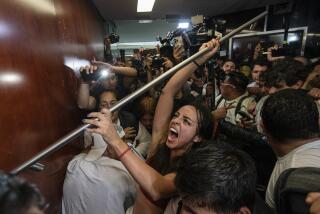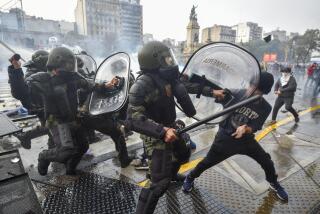A year after nationwide protests, Chile goes to the polls on a new constitution
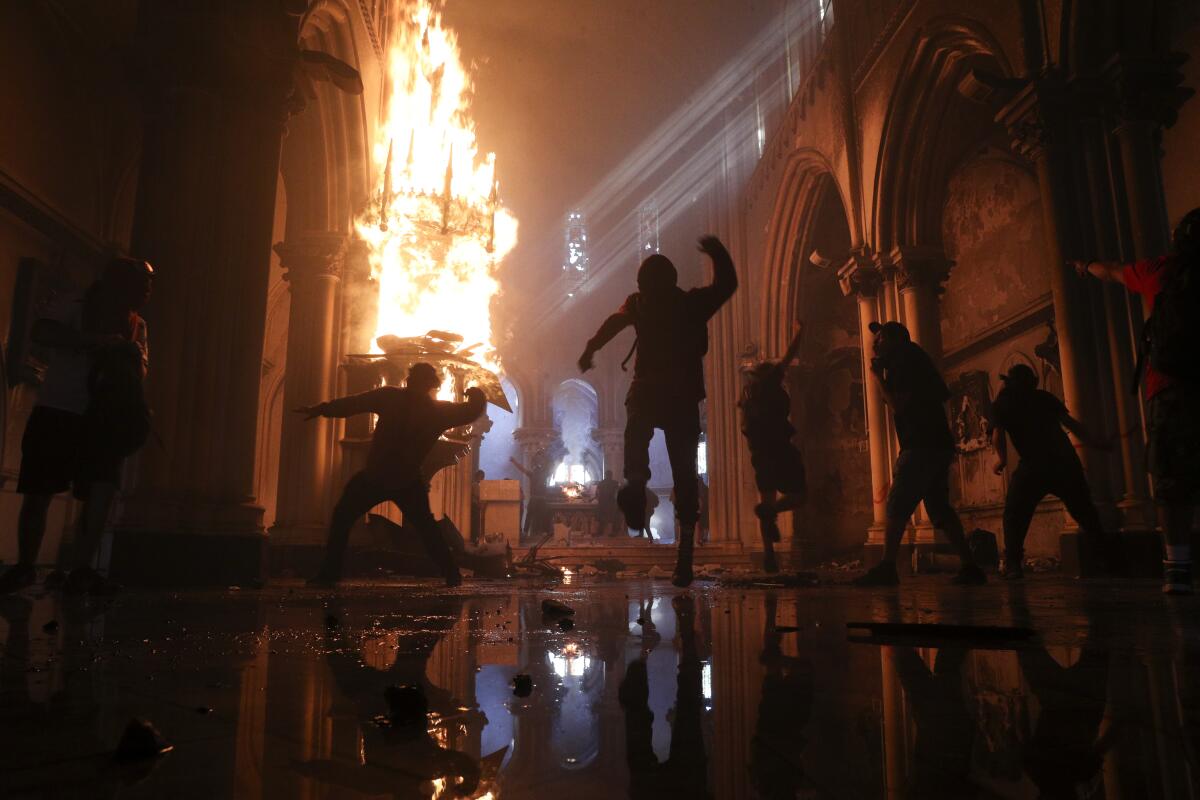
- Share via
SANTIAGO, Chile — More than three decades ago, Chileans went to the polls in a landmark plebiscite and voted to end the dictatorial rule of Gen. Augusto Pinochet.
On Sunday, Chile votes on another referendum aimed at erasing a key pillar of Pinochet’s legacy — the 1980 constitution approved under his authoritarian rule.
Sunday’s vote, originally scheduled for April but pushed back because of the COVID-19 pandemic, was the government’s major concession to civil unrest last year that largely paralyzed this South American nation of 19 million.
Student protests against a transit fare hike soon escalated into a broader movement targeting inequalities in a country long hailed as a regional beacon of economic progress and political stability — but in reality deeply divided, with half of its workers earning the equivalent of $500 a month or less.
Clashes with police and rioting last year left at least 31 people dead and caused $1.4 billion in damage — including torched shopping malls, supermarkets and subway stations.
Billionaire President Sebastián Piñera, who initially declared that the government was “at war against a powerful enemy” in dealing with the unrest, backed down after weeks of turmoil and declared: “It’s time to listen to the people.”
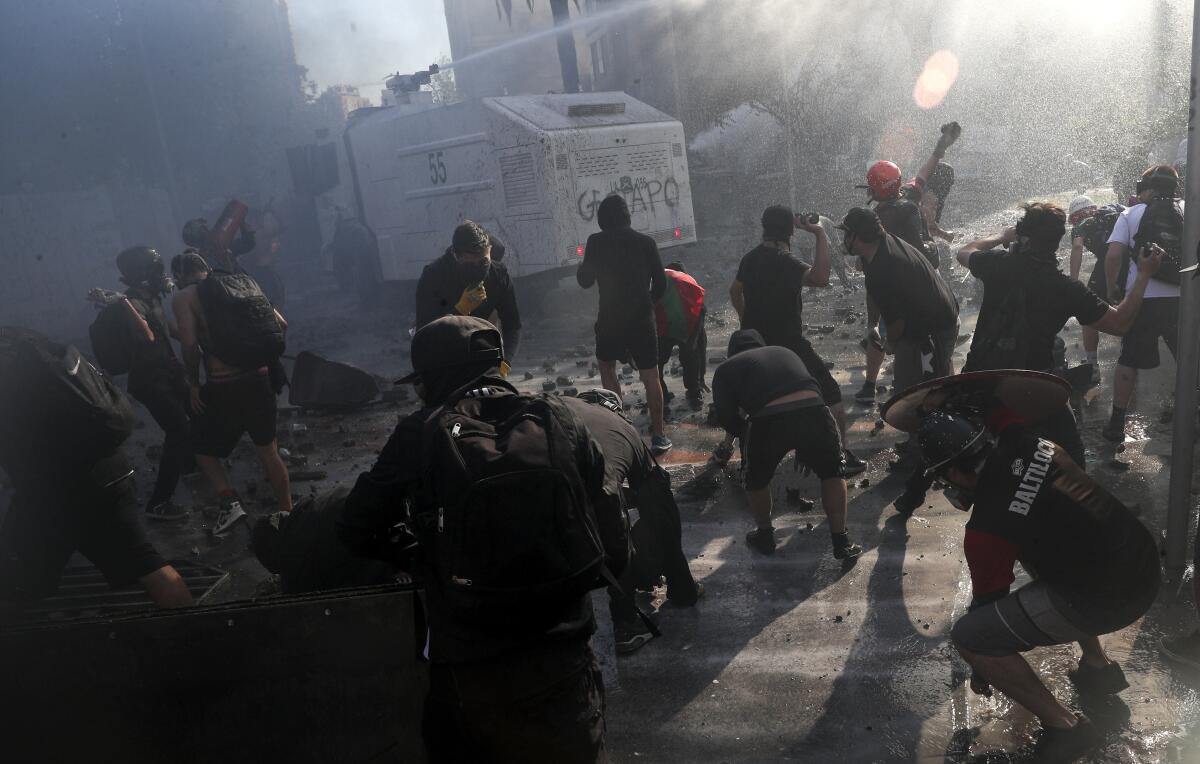
Last November, leaders of almost all of the country’s political factions signed on to a deal calling for a vote to rewrite the constitution to reflect protesters’ demands for reform.
Polls have indicated that around 70% of Chileans will vote in favor of the rewrite.
“Let’s hope now we get a fair democracy,” said Valentina Seguel, 22, a veterinary medicine student who, like many of her generation, had to take out a loan to go to college. “We don’t have decent healthcare. There’s no quality education for people with fewer resources. … We need a change.”
Sunday’s balloting takes aim at a constitution that was already amended after democracy was restored in 1990, with Pinochet’s signature removed in 2005.
The new referendum is not really about Pinochet — more than half of eligible Chilean voters were younger than 20 when he left office in 1990, and about 1 in 5 hadn’t been born by then. Rather, the debate targets the charter’s emphasis on protecting business and markets. It is a model that, critics say, does little to address economic inequities, while ignoring environmental concerns.
“What’s at stake here is the preeminence of the market over the state on issues of social rights like pensions, health, education, housing ... the protection of natural resources, including water, and the recognition of Indigenous people,” said Claudio Fuentes, a political science professor at Diego Portales University. “And symbolically, it is Pinochet’s constitution, which is its original sin.”
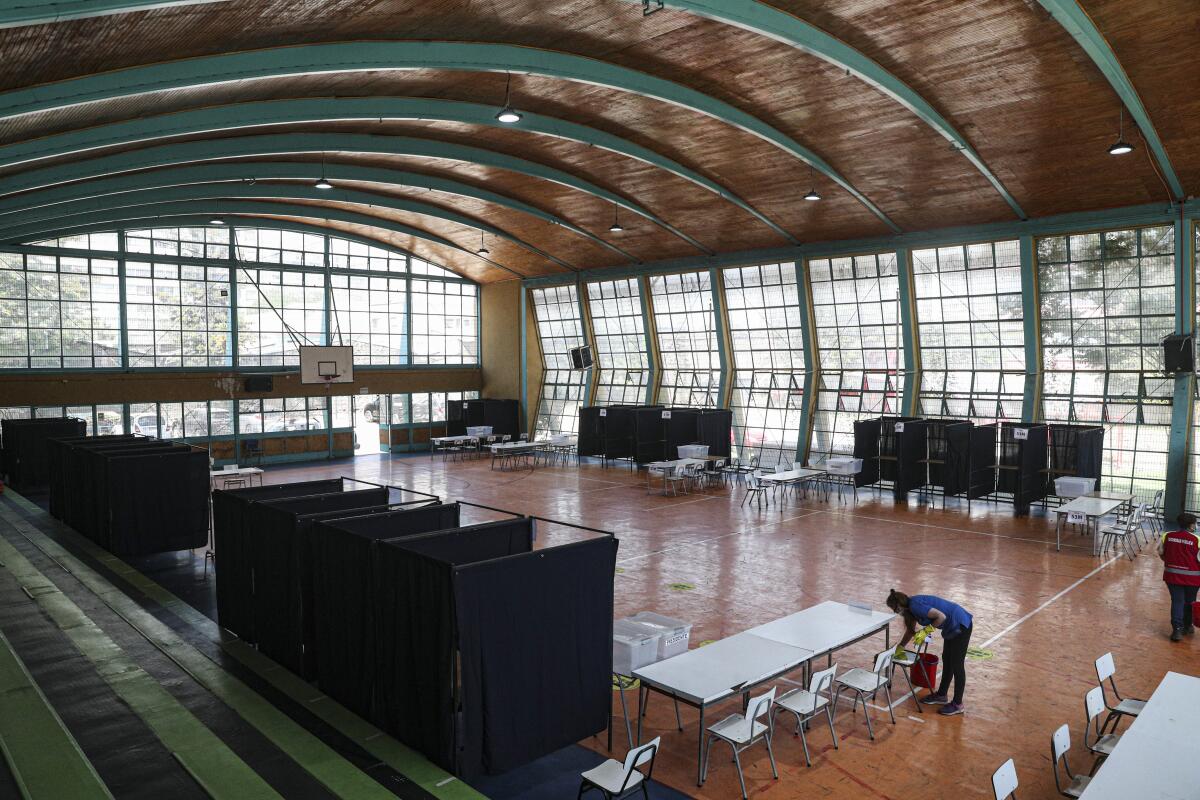
Opponents worry that constitutional reforms could dampen prospects for growth and heighten pressure on state finances already stretched thin by the pandemic. Chile’s economy is expected to shrink by more than 5% this year.
“It’s ridiculous to waste millions changing a constitution in the midst of a pandemic,” said Daniel Sagredo, 65, a helicopter pilot. “It’s with this constitution that the country has grown enormously in the last decades.”
Others voice fears that a new constitution could send the long-stable country down a path of lawlessness and anarchy.
Last Sunday, on the anniversary of last year’s demonstrations, otherwise peaceful rallies in Santiago devolved into violence when masked vandals struck two churches in the capital, broke into and stole from stores and attacked police stations.
“I was going to vote for rewriting the constitution, but now I’m scared to think about what’s to come,” said Valeria Krutmeyer, 50, as she scooped up debris downtown at the landmark Roman Catholic La Asunción Church, burned to the ground in the violent outburst.
“This is not protesting,” said Krutmeyer, a member of the church choir. “These are thugs.”
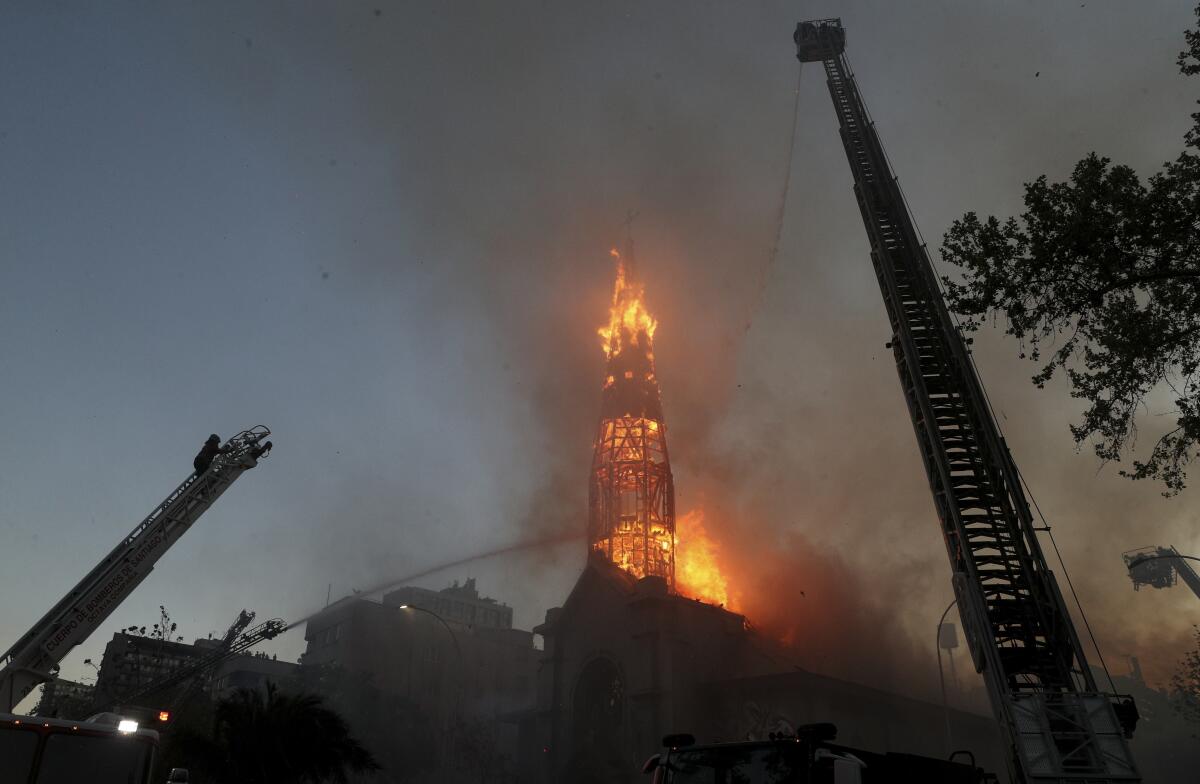
On Sunday, voters will be asked not only if they favor a new national charter but, if so, who should do the rewrite — a constitutional convention fully elected by popular vote, or a mixed assembly composed of sitting lawmakers and elected citizens.
Once a new constitution is drafted — after up to a year of work — the document would be submitted to voters in yet another referendum scheduled for 2022.
Among those participating in a recent rally here in favor of scrapping the current charter was María Paz Grandjean, 45, a well-known actress who has recovered after being shot in the face, apparently by a rubber bullet, during last year’s protests. She recalls the elation of the 1988 referendum that ousted Pinochet, but regrets that a more equitable society did not emerge.
“Those of us who innocently lived that joy are now adults,” she said. “But we cannot let the politicians assure us once again that, yes, justice will be served — but only to the extent possible.”
Special correspondent Poblete reported from Santiago and Times staff writer McDonnell from Mexico City.
More to Read
Sign up for Essential California
The most important California stories and recommendations in your inbox every morning.
You may occasionally receive promotional content from the Los Angeles Times.

